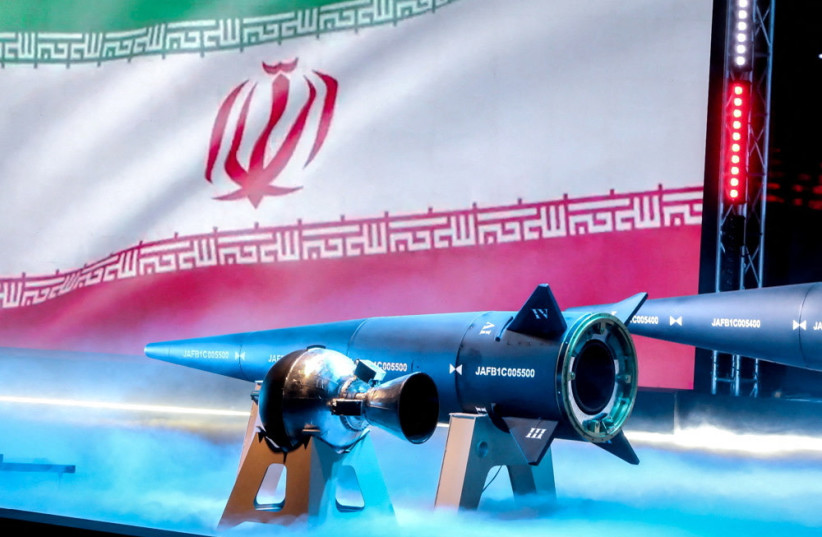Pakistan said it used killer drones and rockets to strike separatist Baloch militants inside Iran on Thursday, ina retaliatory strike two days after Tehran said it attacked the bases of another group within Pakistani territory.
Iranian media said several missiles hit a village in the Sistan-Baluchestan province that borders Pakistan, killing at least nine people, including four children.
The neighbors have had rocky ties in the past, but the strikes are the highest-profile cross-border intrusions in recent years and come amid growing worries about instability in the Middle East since the war between Israel and Hamas erupted on Oct. 7.
Pakistan response to Iran strikes
"A number of terrorists were killed during the intelligence-based operation," Pakistan's foreign ministry said, describing it as a "series of highly coordinated and specifically targeted precision military strikes against terrorist hideouts."
"The sole objective of today's act was in pursuit of Pakistan's own security and national interest, which is paramount and cannot be compromised," the ministry added.

A senior Pakistani security official told Reuters the military was on "extremely" high alert and would meet any "misadventure" from the Iranian side forcefully.
Tehran strongly condemned the strikes, saying civilians were killed,and summoned Pakistan's charge d'affaires, its most senior diplomat in Iran, to give an explanation.
"The information received indicates that four children, three women and two men, who were foreign nationals, have been killed in the explosion that occurred in a village," Iran's Interior Minister Ahmad Vahidi told state TV.
In Islamabad, a foreign ministry spokesperson said Pakistan's caretaker, Prime Minister Anwaar-ul-Haq Kakar, would cut short a visit to the World Economic Forum in Davos and return home.
"The precision strikes were carried out using killer drones, rockets, loitering munitions and stand-off weapons," a Pakistani military statement said. It said the targets were bases used by the Baloch Liberation Front (BLF) and the associated Baloch Liberation Army.
Iran said on Tuesday it had hit targets inside Pakistan that it alleged were bases of Jaish al Adl (JAA). All the targeted groups are ethnically Baloch, but it was not clear if JAA has links with the other two.
Nuclear-armed Pakistan said civilians were hit and two children killed, warning of consequences for which Tehran would be responsible.
Islamabad recalled its ambassador from Iran on Wednesday in protest against a "blatant breach" of its sovereignty.
Escalation fears
Iran had been flexing its muscles in the region, even before its cross-border incursion into Pakistan.
It launched strikes on Syria against what Tehran said were Islamic State sites and Iraq, where it said it had struck an Israeli espionage center. Baghdad recalled its ambassador from Tehran.
The neighbors had appeared to be improving ties, with Iran's Foreign Minister Hossein Amirabdollahian and Pakistan's Kakar meeting at Davos this week, before the Iranian strikes on Pakistan.
Pakistan's comments after its retaliatory strikes signal a desire to keep the row contained, but analysts warned it could get out of hand.
"Iran's motivation for attacking Pakistan remains opaque but in light of broader Iranian behavior in the region it can escalate," Asfandyr Mir, a senior expert on South Asia security at the US Institute of Peace, told Reuters.
"What will cause anxiety in Tehran is that Pakistan has crossed a line by hitting inside Iranian territory, a threshold that even the US and Israel have been careful to not breach."
Khwaja Asif, Pakistan's defense minister until August, said the action was retaliatory.
"A measured response has been given, and it was important," he told Geo TV. "There should be ongoing efforts on the side that this doesn't escalate."
Pakistan's international bonds fell after the strikes. Longer-dated bonds slipped as much as 1.3 cents in early trading though they later trimmed losses, according to Tradeweb data. US695847AB92=TE.
The targeted militant groups operate in an area that includes Pakistan's southwestern province of Balochistan and Iran's southeastern Sistan-Baluchestan province. Both are restive, mineral-rich, and largely underdeveloped.
The BLF, which Islamabad targeted inside Iran, is waging an armed insurgency against the Pakistani state, including attacks against Chinese citizens and investments in Balochistan.
The Jaish al Adl, which Iran targeted, is also an ethnic militant group, but with Sunni Islamist leanings that primarily Shi'ite Iran sees as a threat.
The group has carried out attacks in Iran against its powerful Revolutionary Guard Corps.
